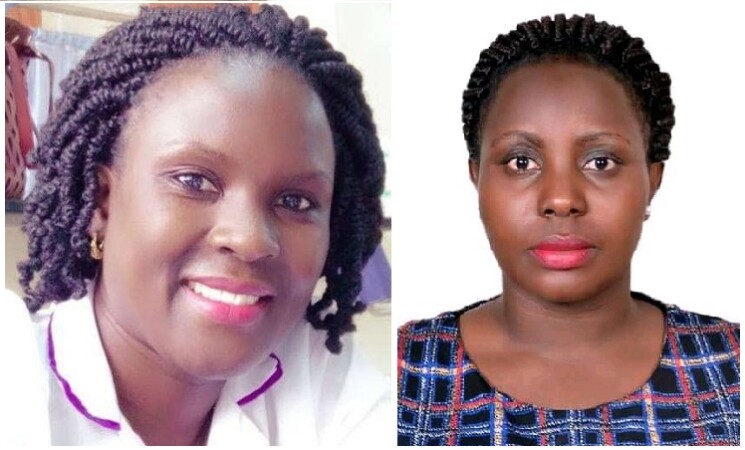Abortion stigma plays a critical role in the social, medical, and legal marginalization of abortion care around the world and it leads to negative health outcomes for both women and girls in our communities. It drives to the high number of maternal morbidity and mortality around the world due to unsafe abortion.
Abortion stigma is when we reject, isolate, blame or shame a person about abortion whether it’s someone considering getting an abortion, or someone providing abortion services, or someone who showing support for others’ right to have an abortion. This includes gossiping, scolding, disapproving, shaming, devaluing, rejecting, scorning, bullying, reinforcing taboos, shunning, separating, isolating, punishing, discriminating, behaving violently and prosecuting people who have had, or help in performing, abortions.
Majority of us stigmatize abortion, even when we don’t realize we’re doing it. Abortion stigma is attributed to many factors including lack of information, religious beliefs, misconceptions of abortion prevalence, harmful gender roles, and social norms about abortion among other factors. Abortion stigma goes ahead to affect everyone in our families and communities. Almost everyone knows someone who has had an abortion and who has had to confront abortion stigma. People who support access to safe abortion services are often stigmatized, including health-care workers who provide safe abortion services, as well as advocates who work to change laws that restrict access to safe abortion services. This kind of stigma makes it harder for people to access and receive safe abortion services. Abortion stigma was witnessed when we recently had two of our articles published. These were entitled “safe abortions are a life saver for young girls” and another on “safe abortions or letting women die”. Some people went ahead to preach to us on how evil abortion is. Yet, abortions, when offered by a trained health provider are one of the safest medical procedures available.
However, because of abortion stigma, young girls and women are often driven to seek unsafe options that can injure or kill them. These injuries and deaths caused by unsafe abortions services are completely preventable. We can help prevent the harmful effects of abortion stigma by increasing awareness of what abortion stigma looks like and shifting our thoughts, actions around abortion, no matter what our beliefs are. We can also have a positive effect by helping our communities understand the dangers of abortion stigma. Nearly, everyone experiences stigma in their lives, or at least has felt lonely, ashamed, isolated or rejected because of a personal choice or action that went against dominant social norms.
Abortion stigma and restrictions on abortion care can make it difficult for people who have unwanted pregnancies to verify the quality of a provider’s services or information, and this forces them to search for information in secret or push them to rely on dangerous abortion methods, such as use of chemicals like jik and washing powder or inserting sharp objects like sticks or hangers in their private parts so as to get rid of the unwanted pregnancy. Such practices put young girls and women at a high risk of dying. In-fact, unsafe abortions contribute to 10% of maternal deaths in Uganda.
Abortion information and care should be legal, safe, accessible, affordable and of high quality. Most societies, people assume abortion is not something we can discuss openly; we often discuss abortion in whispers. It is rare that people who have abortions feel safe enough to openly share their experiences. Even feminists and advocates in countries where abortion is legally protected feel pressure to stay silent.
Organizations and advocates who speak publicly in favour of safe abortion access also learn that there are situations where it is better or at least easier to keep quiet. Sometimes, we silence ourselves as advocates because we are not sure what others will say or do. Sometimes we operate in secrecy because of stigma, the pressures to keep quiet about abortion are a result of stigma. Silence fuels abortion stigma because it gives people opposed to abortion the power to define abortion related debates. We must break the silence around abortion. We all have a role to play in breaking the silence around abortion. As health workers, family members, friends, advocates and activists, we can decide to talk more openly, in spaces where we are safe and where we’re not putting anyone at risk. When we share our stories, we open the door for others to share. With more sharing, we can break down the feelings of shame around abortion that exist in so many places.
The authors are; Namakula Ritah; a Registered Midwife and BSc trained midwife working with Mulago Specialised Women and Neonatal Hospital and
Lilian Nuwabaine; a BSc Nurse and MSN-Midwife and Women’s’ Health Specialist
If you would like your article/opinion to be published on Uganda’s most authoritative news platform, send your submission on: [email protected]. You can also follow DailyExpress on WhatsApp and on Twitter (X) for realtime updates.



